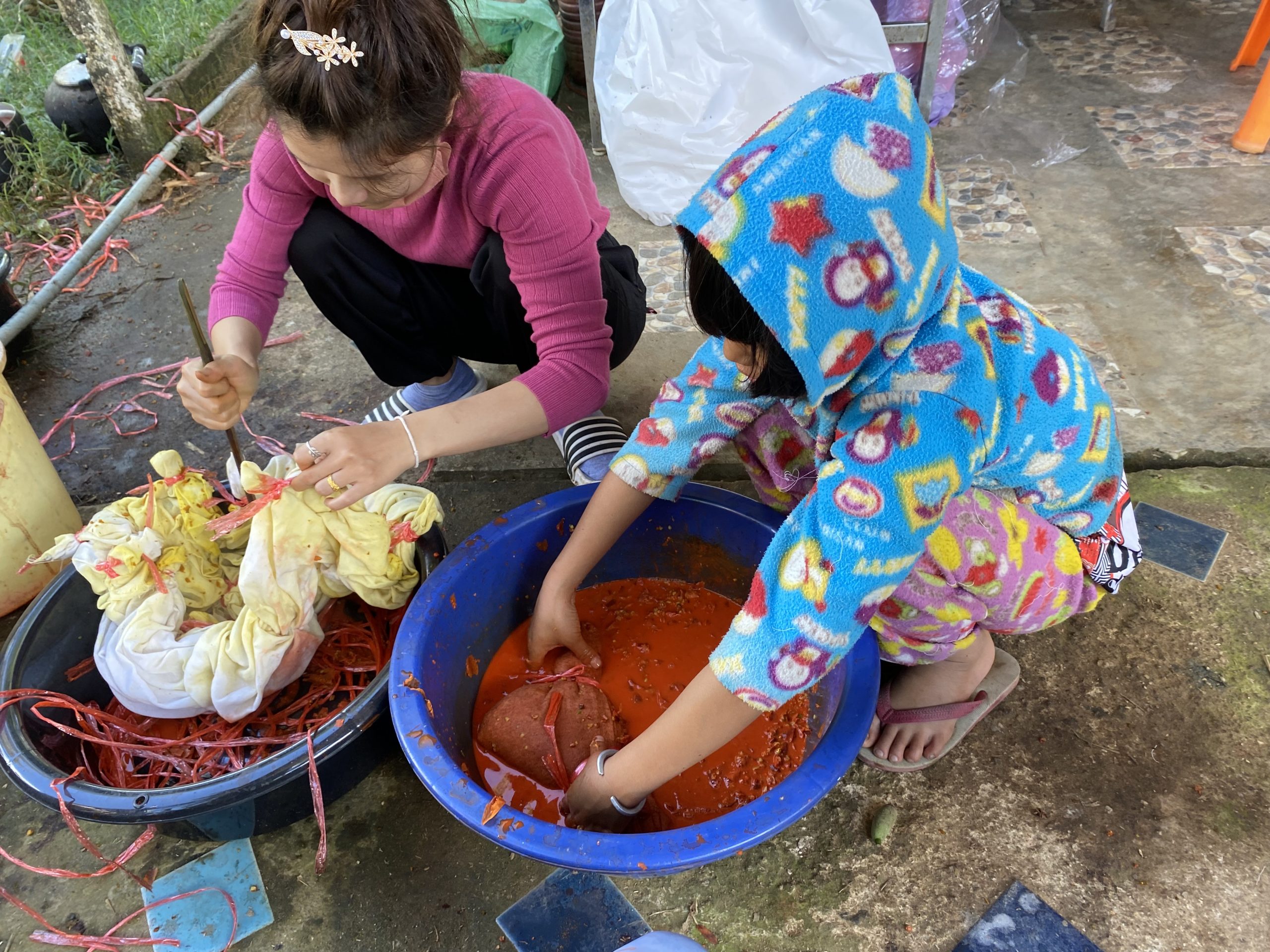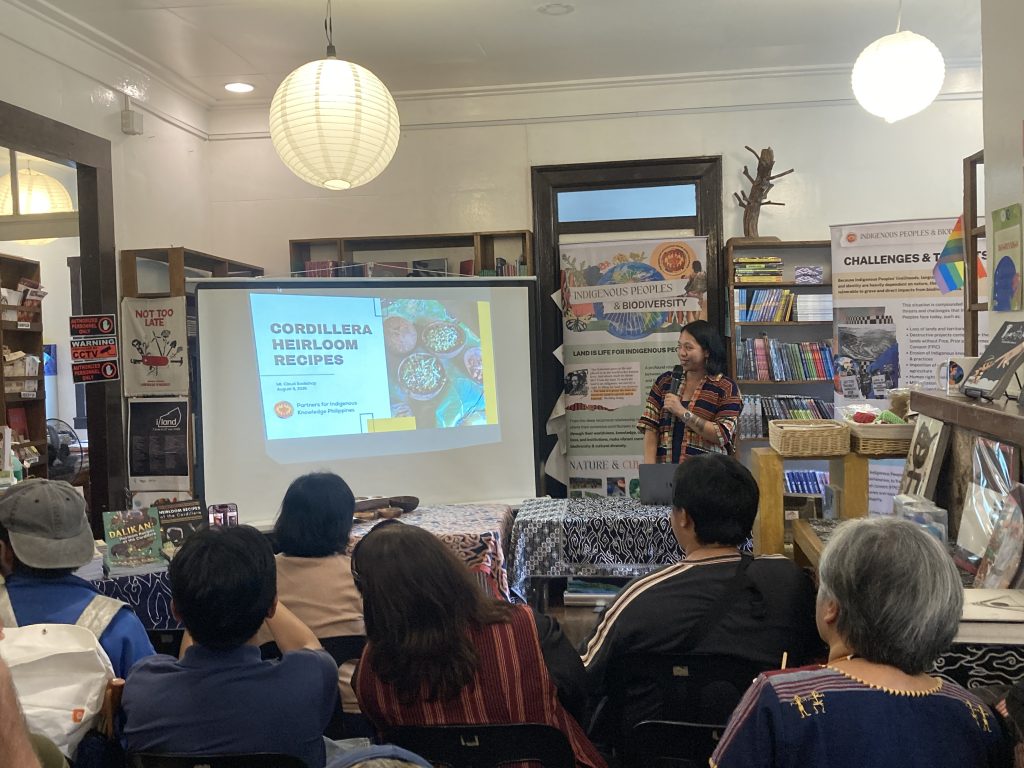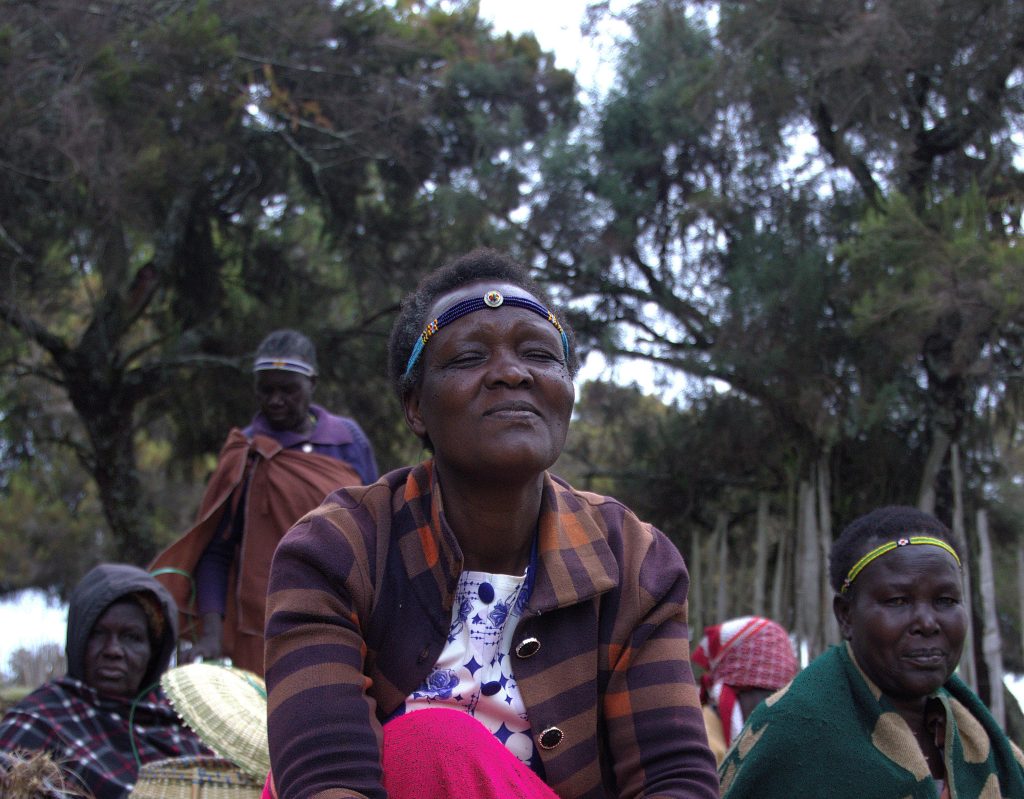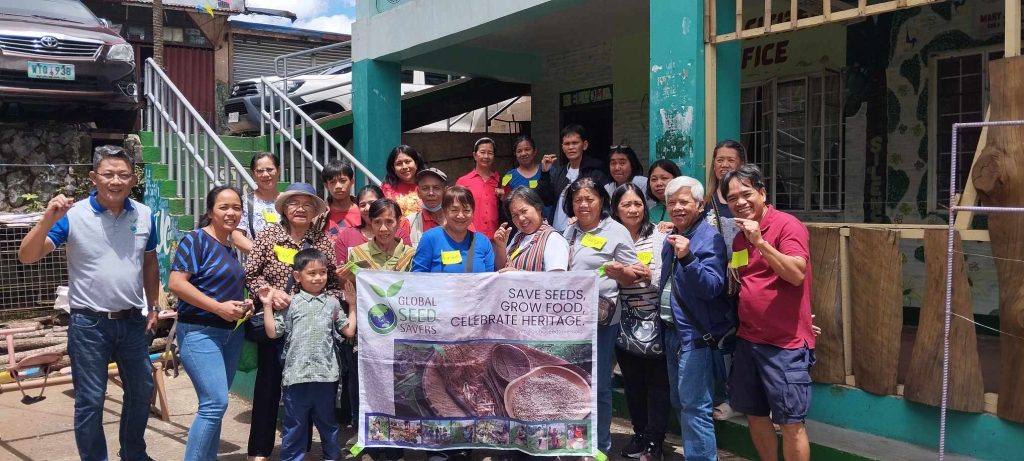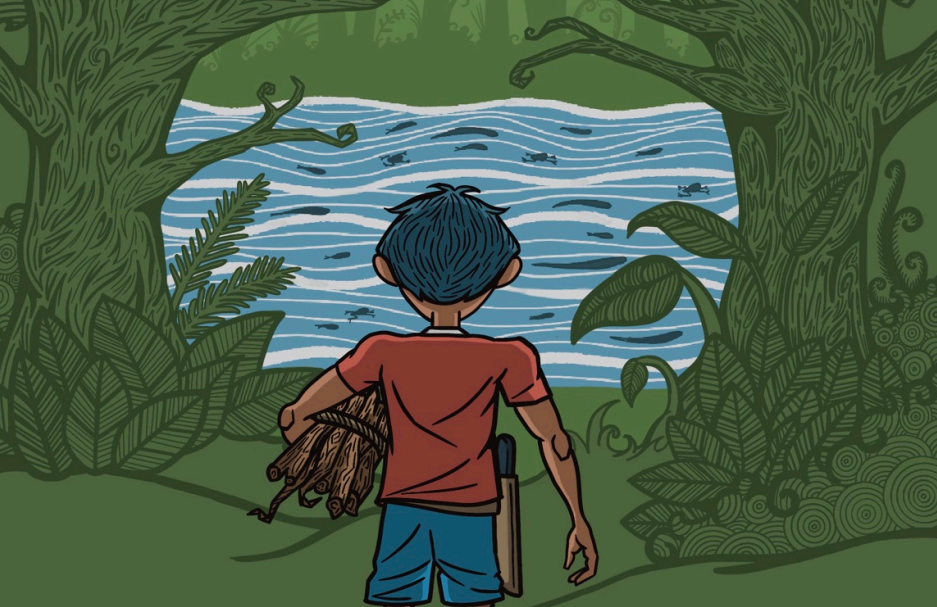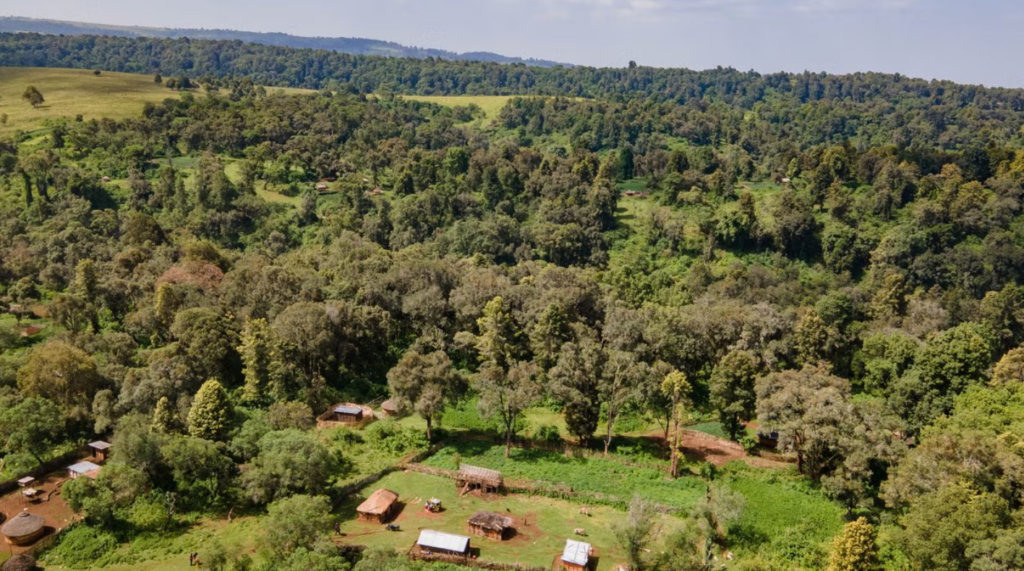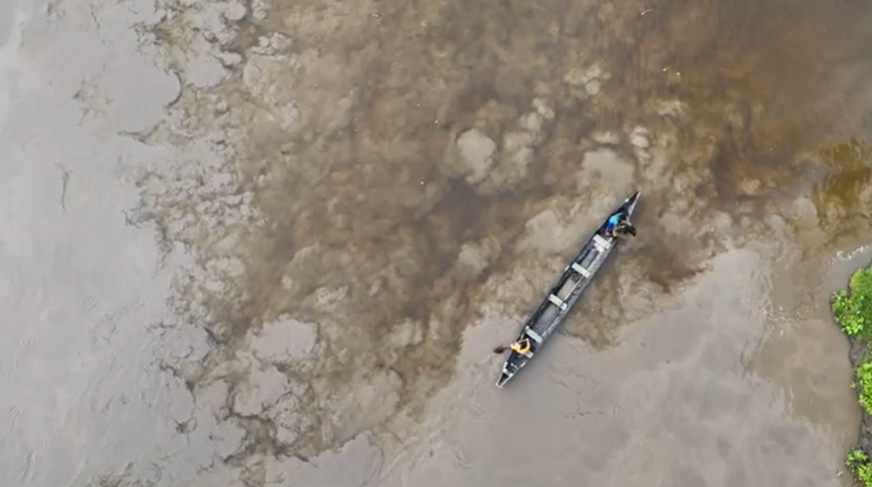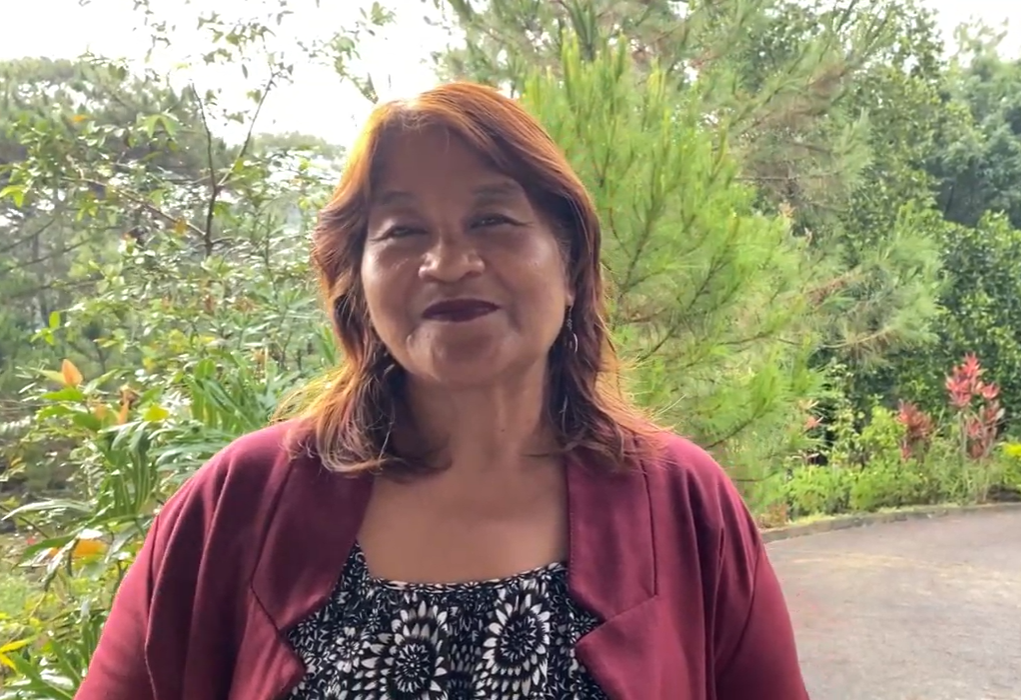Sustainable livelihoods build on Indigenous Peoples’ deep and long-term relationships with their lands and waters, and embody values, knowledge systems and sustainable practices that conserve biodiversity. Based on systems of customary sustainable use stretching back generations, these livelihoods patterns evolve and develop responding to changing conditions.
This project partners with communities and peoples to revitalize and innovate ecosystem-based livelihood options supporting long-term sustainable use and conservation of territories and resources, community health and family well-being.
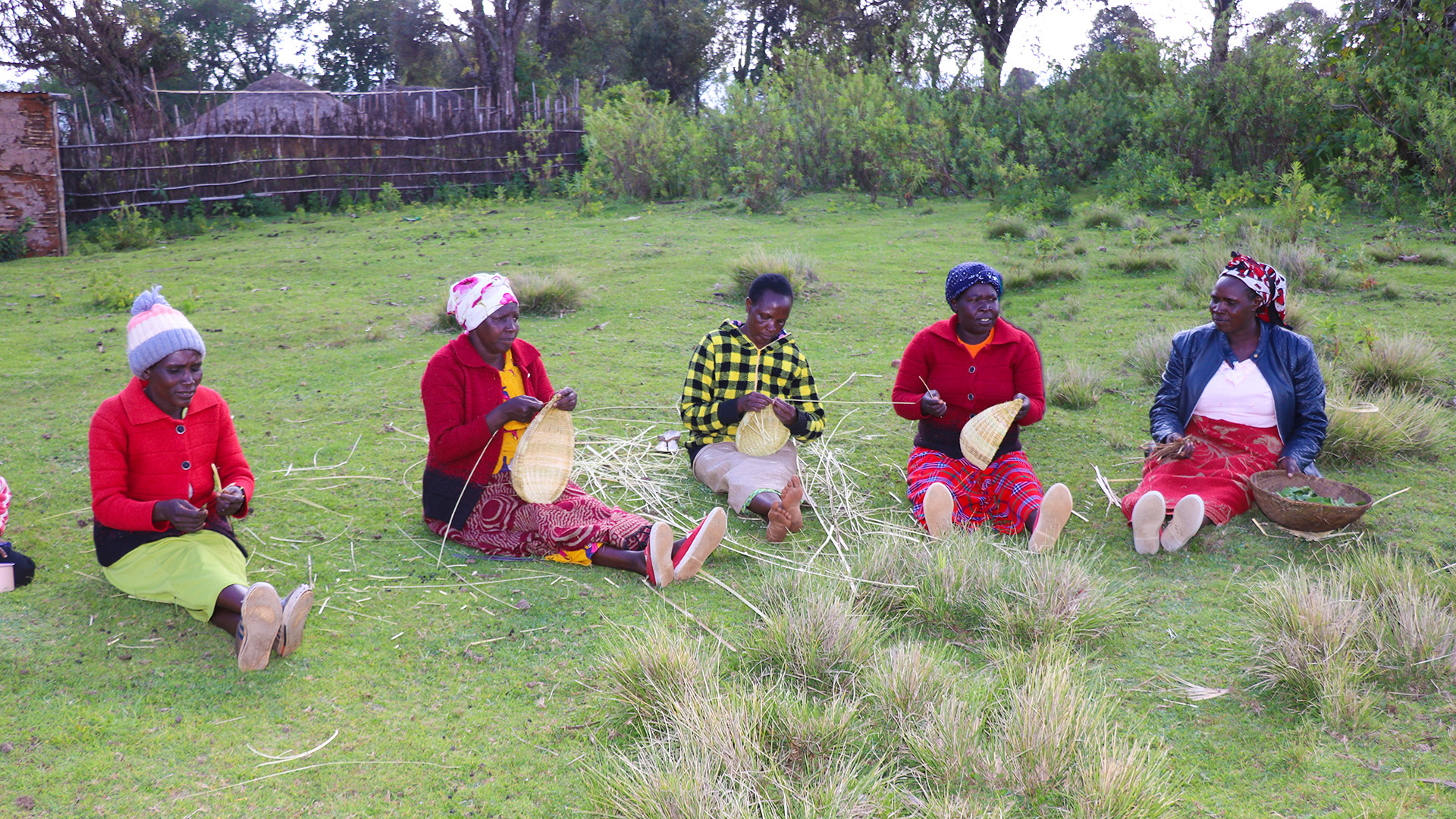
Ogiek women engage in basketry. Bamboo baskets replace use of plastic materials in Chepkitale. Photo by Dickence/CIPDP
Further info
This work is critical because in too many countries, governments fail to provide the policy and legal frameworks needed to allow customary sustainable use patterns to thrive and fail to provide for modest but vital monetary income in rural and remote communities.
Sustainable livelihood initiatives supported by this project aim to build on traditional practices and support indigenous communities to develop income-generating activities which may include ecotourism, sustainable agriculture, forestry, fisheries, and production of artisanal crafts.
Sustainable livelihoods are important for maintaining cultural and ecological diversity, reducing poverty, and promoting equitable and inclusive development. However, their success often depends on the recognition of indigenous peoples’ rights, particularly to lands, territories and resources, and their full participation in decision-making processes, as well as government recognition or and support for the continuity and resilience of traditional occupations.
